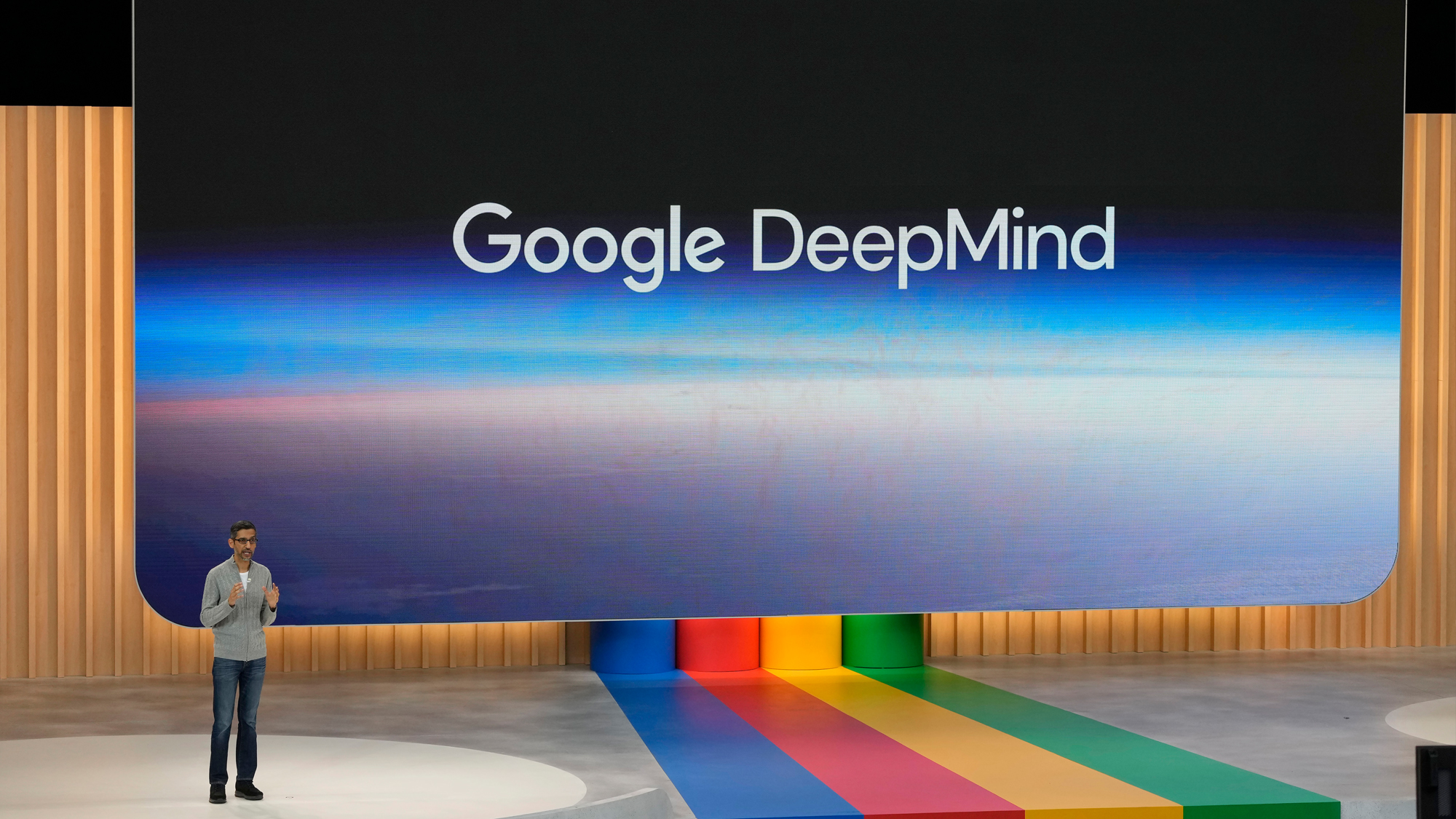Artificial history
Google's AI tailored the past to fit modern mores, but only succeeded in erasing real historical crimes

A free daily email with the biggest news stories of the day – and the best features from TheWeek.com
You are now subscribed
Your newsletter sign-up was successful
If I asked you to create an image in your mind of a stereotypical Nazi soldier, what would his face look like? Perhaps a jutting chin, cruel blue eyes, and — underneath that steel helmet — a head of blond hair that's been shaved on the sides and left long on top. As for skin color, we're going with white, right? Wrong, according to Google's new Gemini artificial intelligence model. Asked by users to generate images of World War II-era German soldiers, it offered up illustrations of Black men and Asian women in Wehrmacht uniforms — as well as the occasional Aryan-looking fella. Other historical queries yielded similarly puzzling results: The Founding Fathers were apparently a racially diverse bunch that included a few Founding Mothers, while the founders of Google were two Asian men, not the clearly Caucasian Sergey Brin and Larry Page. This has been manna for the "anti-woke" right, which has pointed to Gemini as evidence that Silicon Valley is trying to rewrite history to fit its preferred progressive narrative, one in which white males are largely absent.
What's more likely is that the skewed results stem from Google's attempt to avoid the racial and gender biases that have plagued other AI models, such as chatbots that produce only white men in white coats when asked for an image of a doctor. So Gemini's architects tweaked the AI to make its output more diverse and, as Megan McArdle writes in The Washington Post, perhaps "a little aspirationally overrepresentative." That's a noble goal — but twisting history to fit modern mores only creates more problems. A middle schooler who uses such an AI for research might come away believing that white men in 18th-century America treated Blacks and women as their respected equals, rather than as their property and subordinates. If that's the case, the kid might wonder, then what was the point of the civil rights and suffragette movements? We can't learn from history by erasing it.
This is the editor's letter in the current issue of The Week magazine.
The Week
Escape your echo chamber. Get the facts behind the news, plus analysis from multiple perspectives.

Sign up for The Week's Free Newsletters
From our morning news briefing to a weekly Good News Newsletter, get the best of The Week delivered directly to your inbox.
From our morning news briefing to a weekly Good News Newsletter, get the best of The Week delivered directly to your inbox.
A free daily email with the biggest news stories of the day – and the best features from TheWeek.com
Theunis Bates is a senior editor at The Week's print edition. He has previously worked for Time, Fast Company, AOL News and Playboy.
-
 ‘Poor time management isn’t just an inconvenience’
‘Poor time management isn’t just an inconvenience’Instant Opinion Opinion, comment and editorials of the day
-
 Bad Bunny’s Super Bowl: A win for unity
Bad Bunny’s Super Bowl: A win for unityFeature The global superstar's halftime show was a celebration for everyone to enjoy
-
 Book reviews: ‘Bonfire of the Murdochs’ and ‘The Typewriter and the Guillotine’
Book reviews: ‘Bonfire of the Murdochs’ and ‘The Typewriter and the Guillotine’Feature New insights into the Murdoch family’s turmoil and a renowned journalist’s time in pre-World War II Paris
-
 Will AI kill the smartphone?
Will AI kill the smartphone?In The Spotlight OpenAI and Meta want to unseat the ‘Lennon and McCartney’ of the gadget era
-
 Claude Code: Anthropic’s wildly popular AI coding app
Claude Code: Anthropic’s wildly popular AI coding appThe Explainer Engineers and noncoders alike are helping the app go viral
-
 Will regulators put a stop to Grok’s deepfake porn images of real people?
Will regulators put a stop to Grok’s deepfake porn images of real people?Today’s Big Question Users command AI chatbot to undress pictures of women and children
-
 Most data centers are being built in the wrong climate
Most data centers are being built in the wrong climateThe explainer Data centers require substantial water and energy. But certain locations are more strained than others, mainly due to rising temperatures.
-
 The dark side of how kids are using AI
The dark side of how kids are using AIUnder the Radar Chatbots have become places where children ‘talk about violence, explore romantic or sexual roleplay, and seek advice when no adult is watching’
-
 Why 2025 was a pivotal year for AI
Why 2025 was a pivotal year for AITalking Point The ‘hype’ and ‘hopes’ around artificial intelligence are ‘like nothing the world has seen before’
-
 AI griefbots create a computerized afterlife
AI griefbots create a computerized afterlifeUnder the Radar Some say the machines help people mourn; others are skeptical
-
 The robot revolution
The robot revolutionFeature Advances in tech and AI are producing android machine workers. What will that mean for humans?